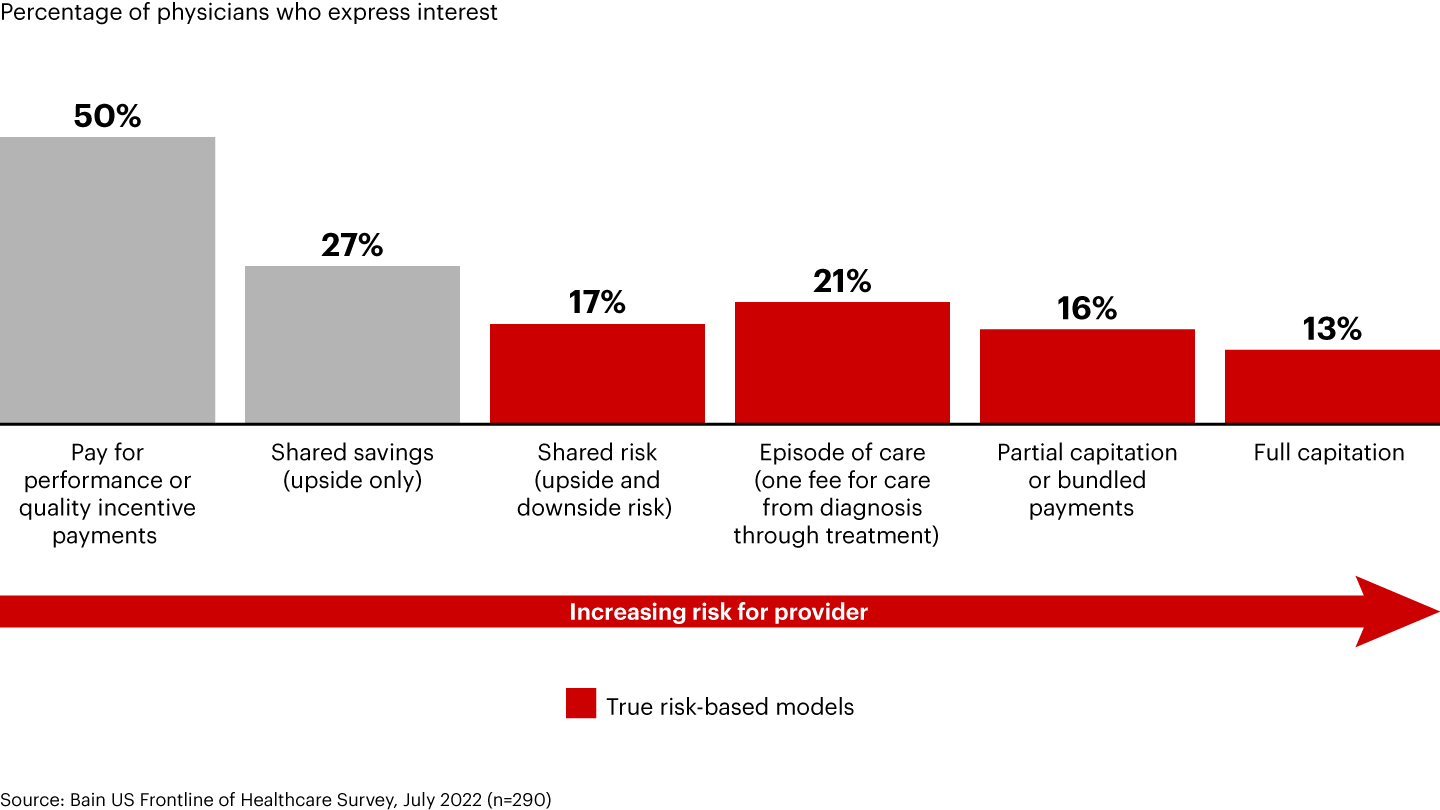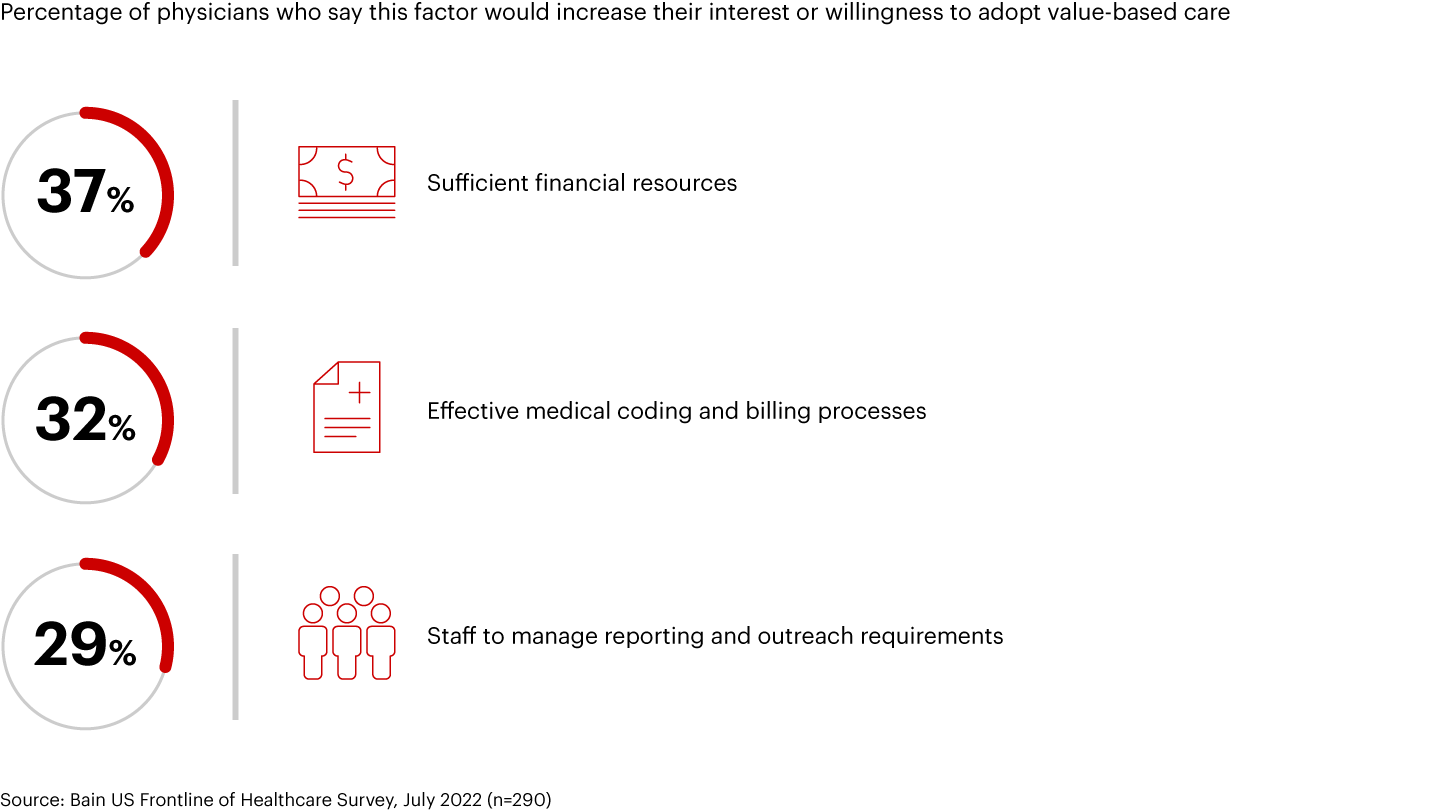Frontline of Healthcare




According to Bain’s recent Frontline of Healthcare survey, around 80% of physicians say they are interested in participating in value-based care (VBC) arrangements. However, that interest declines as the level of risk to the provider increases (see Figure 1).
The mismatch between payers that want increased cost savings and providers that only want upside risk has restrained VBC growth in the US. Two-sided risk-based payment models, or those that include both upside and downside financial risk, still make up less than 20% of total healthcare payments, based on a study by the Health Care Payment Learning & Action Network.
Physicians have well-founded concerns about their ability to take on risk, fueling their hesitation. Bain research shows physicians continue to face financial, operational, and administrative hurdles to adopting VBC. They also acknowledge the difficulty of succeeding in VBC models and feel considerably less equipped to succeed now than they did in 2017 and 2020, based on our previous surveys.
What would make physicians more inclined to adopt? They cite more sufficient financial resources, more effective medical coding and billing processes, and additional staff to manage the reporting and outreach requirements (see Figure 2).

A Treatment for America’s Healthcare Worker Burnout
A quarter of US clinicians are considering switching careers. Leading providers will combine immediate actions with longer-term investments to combat attrition and improve well-being.